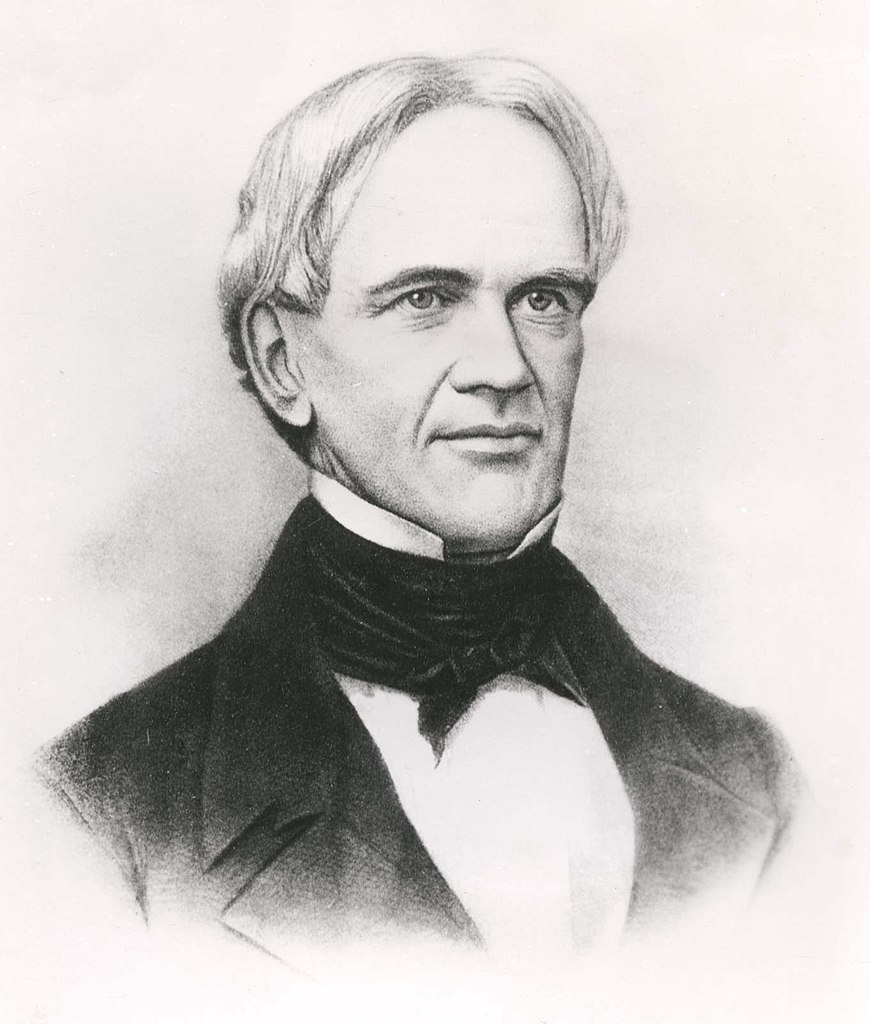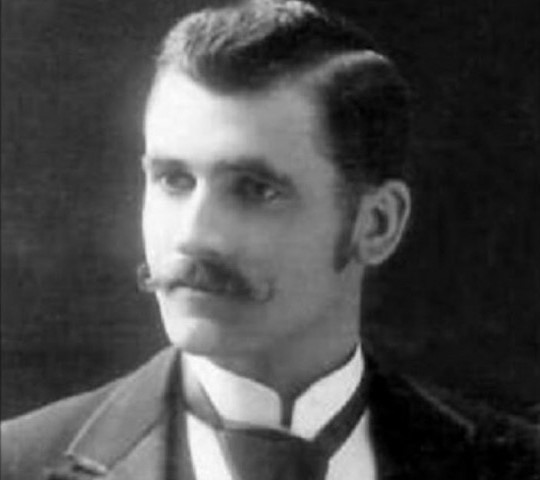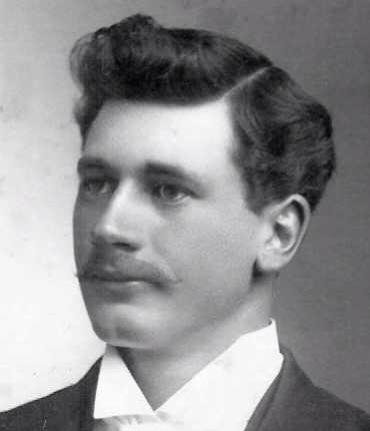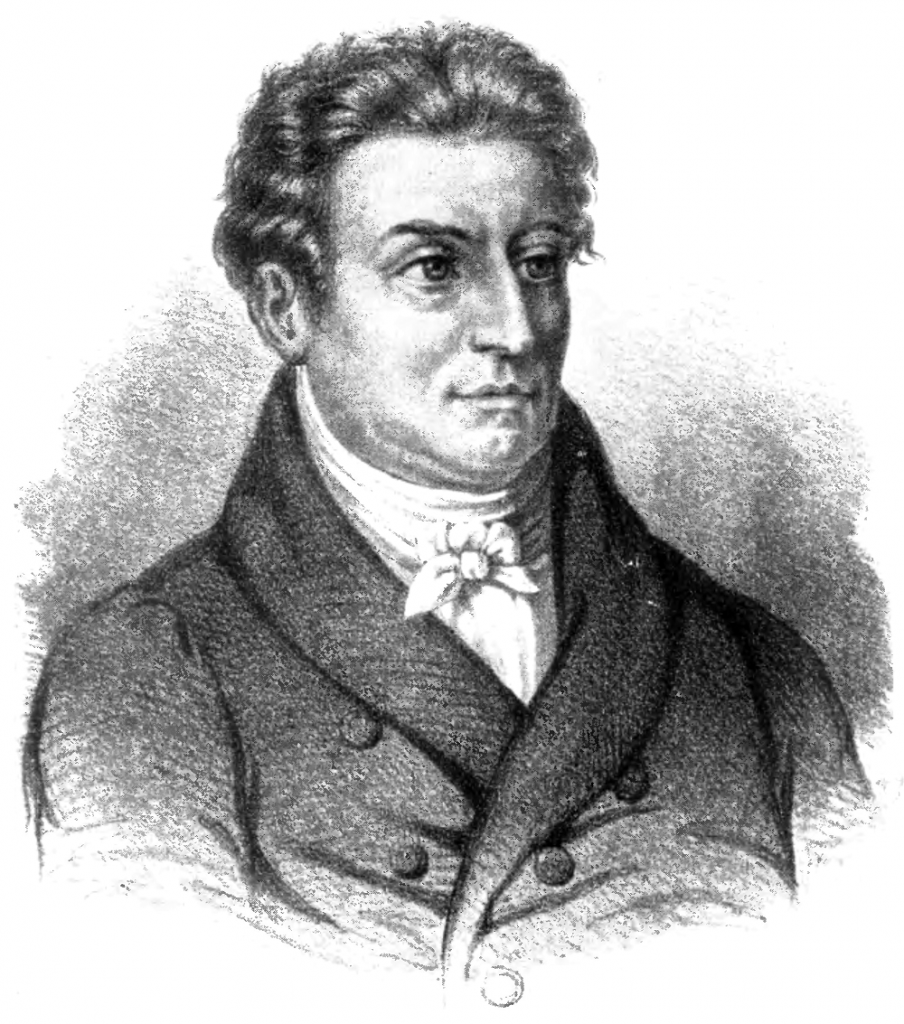History Cooperative

The Homework Dilemma: Who Invented Homework?
The inventor of homework may be unknown, but its evolution reflects contributions from educators, philosophers, and students. Homework reinforces learning, fosters discipline, and prepares students for the future, spanning from ancient civilizations to modern education. Ongoing debates probe its balance, efficacy, equity, and accessibility, prompting innovative alternatives like project-based and personalized learning. As education evolves, the enigma of homework endures.
Table of Contents
Who Invented Homework?
While historical records don’t provide a definitive answer regarding the inventor of homework in the modern sense, two prominent figures, Roberto Nevelis of Venice and Horace Mann, are often linked to the concept’s early development.
Roberto Nevelis of Venice: A Mythical Innovator?
Roberto Nevelis, a Venetian educator from the 16th century, is frequently credited with the invention of homework. The story goes that Nevelis assigned tasks to his students outside regular classroom hours to reinforce their learning—a practice that aligns with the essence of homework. However, the historical evidence supporting Nevelis as the inventor of homework is rather elusive, leaving room for skepticism.
While Nevelis’s role remains somewhat mythical, his association with homework highlights the early recognition of the concept’s educational value.
Horace Mann: Shaping the American Educational Landscape
Horace Mann, often regarded as the “Father of American Education,” made significant contributions to the American public school system in the 19th century. Though he may not have single-handedly invented homework, his educational reforms played a crucial role in its widespread adoption.
Mann’s vision for education emphasized discipline and rigor, which included assigning tasks to be completed outside of the classroom. While he did not create homework in the traditional sense, his influence on the American education system paved the way for its integration.
The invention of homework was driven by several educational objectives. It aimed to reinforce classroom learning, ensuring knowledge retention and skill development. Homework also served as a means to promote self-discipline and responsibility among students, fostering valuable study habits and time management skills.
Why Was Homework Invented?
The invention of homework was not a random educational practice but rather a deliberate strategy with several essential objectives in mind.
Reinforcing Classroom Learning
Foremost among these objectives was the need to reinforce classroom learning. When students leave the classroom, the goal is for them to retain and apply the knowledge they have acquired during their lessons. Homework emerged as a powerful tool for achieving this goal. It provided students with a structured platform to revisit the day’s lessons, practice what they had learned, and solidify their understanding.
Homework assignments often mirrored classroom activities, allowing students to extend their learning beyond the confines of school hours. Through the repetition of exercises and tasks related to the curriculum, students could deepen their comprehension and mastery of various subjects.
Fostering Self-Discipline and Responsibility
Another significant objective behind the creation of homework was the promotion of self-discipline and responsibility among students. Education has always been about more than just the acquisition of knowledge; it also involves the development of life skills and habits that prepare individuals for future challenges.
By assigning tasks to be completed independently at home, educators aimed to instill valuable study habits and time management skills. Students were expected to take ownership of their learning, manage their time effectively, and meet deadlines—a set of skills that have enduring relevance in contemporary education and beyond.
Homework encouraged students to become proactive in their educational journey. It taught them the importance of accountability and the satisfaction of completing tasks on their own. These life skills would prove invaluable in their future endeavors, both academically and in the broader context of their lives.
When Was Homework Invented?
The roots of homework stretch deep into the annals of history, tracing its origins to ancient civilizations and early educational practices. While it has undergone significant evolution over the centuries, the concept of extending learning beyond the classroom has always been an integral part of education.
Earliest Origins of Homework and Early Educational Practices
The idea of homework, in its most rudimentary form, can be traced back to the earliest human civilizations. In ancient Egypt , for instance, students were tasked with hieroglyphic writing exercises. These exercises served as a precursor to modern homework, as they required students to practice and reinforce their understanding of written language—an essential skill for communication and record-keeping in that era.
In ancient Greece , luminaries like Plato and Aristotle advocated for the use of written exercises as a tool for intellectual development. They recognized the value of practice in enhancing one’s knowledge and skills, laying the foundation for a more systematic approach to homework.
The ancient Romans also played a pivotal role in the early development of homework. Young Roman students were expected to complete assignments at home, with a particular focus on subjects like mathematics and literature. These assignments were designed to consolidate their classroom learning, emphasizing the importance of practice in mastering various disciplines.
READ MORE: Who Invented Math? The History of Mathematics
The practice of assigning work to be done outside of regular school hours continued to evolve through various historical periods. As societies advanced, so did the complexity and diversity of homework tasks, reflecting the changing needs and priorities of education.
The Influence of Educational Philosophers
While the roots of homework extend to ancient times, the ideas of renowned educational philosophers in later centuries further contributed to its development. John Locke, an influential thinker of the Enlightenment era, believed in a gradual and cumulative approach to learning. He emphasized the importance of students revisiting topics through repetition and practice, a concept that aligns with the principles of homework.
Jean-Jacques Rousseau, another prominent philosopher, stressed the significance of self-directed learning. Rousseau’s ideas encouraged the development of independent study habits and a personalized approach to education—a philosophy that resonates with modern concepts of homework.
Homework in the American Public School System
The American public school system has played a pivotal role in the widespread adoption and popularization of homework. To understand the significance of homework in modern education, it’s essential to delve into its history and evolution within the United States.
History and Evolution of Homework in the United States
The late 19th century marked a significant turning point for homework in the United States. During this period, influenced by educational reforms and the growing need for standardized curricula, homework assignments began to gain prominence in American schools.
Educational reformers and policymakers recognized the value of homework as a tool for reinforcing classroom learning. They believed that assigning tasks for students to complete outside of regular school hours would help ensure that knowledge was retained and skills were honed. This approach aligned with the broader trends in education at the time, which aimed to provide a more structured and systematic approach to learning.
As the American public school system continued to evolve, homework assignments became a common practice in classrooms across the nation. The standardization of curricula and the formalization of education contributed to the integration of homework into the learning process. This marked a significant departure from earlier educational practices, reflecting a shift toward more structured and comprehensive learning experiences.
The incorporation of homework into the American education system not only reinforced classroom learning but also fostered self-discipline and responsibility among students. It encouraged them to take ownership of their educational journey and develop valuable study habits and time management skills—a legacy that continues to influence modern pedagogy.
Controversies Around Homework
Despite its longstanding presence in education, homework has not been immune to controversy and debate. While many view it as a valuable educational tool, others question its effectiveness and impact on students’ well-being.
The Homework Debate
One of the central controversies revolves around the amount of homework assigned to students. Critics argue that excessive homework loads can lead to stress, sleep deprivation, and a lack of free time for students. The debate often centers on striking the right balance between homework and other aspects of a student’s life, including extracurricular activities, family time, and rest.
Homework’s Efficacy
Another contentious issue pertains to the efficacy of homework in enhancing learning outcomes. Some studies suggest that moderate amounts of homework can reinforce classroom learning and improve academic performance. However, others question whether all homework assignments contribute equally to learning or whether some may be more beneficial than others. The effectiveness of homework can vary depending on factors such as the student’s grade level, the subject matter, and the quality of the assignment.
Equity and Accessibility
Homework can also raise concerns related to equity and accessibility. Students from disadvantaged backgrounds may have limited access to resources and support at home, potentially putting them at a disadvantage when it comes to completing homework assignments. This disparity has prompted discussions about the role of homework in perpetuating educational inequalities and how schools can address these disparities.
Alternative Approaches to Learning
In response to the controversies surrounding homework, educators and researchers have explored alternative approaches to learning. These approaches aim to strike a balance between reinforcing classroom learning and promoting holistic student well-being. Some alternatives include:
Project-Based Learning
Project-based learning emphasizes hands-on, collaborative projects that allow students to apply their knowledge to real-world problems. This approach shifts the focus from traditional homework assignments to engaging, practical learning experiences.
Flipped Classrooms
Flipped classrooms reverse the traditional teaching model. Students learn new material at home through video lectures or readings and then use class time for interactive discussions and activities. This approach reduces the need for traditional homework while promoting active learning.
Personalized Learning
Personalized learning tailors instruction to individual students’ needs, allowing them to progress at their own pace. This approach minimizes the need for one-size-fits-all homework assignments and instead focuses on targeted learning experiences.
The Ongoing Conversation
The controversies surrounding homework highlight the need for an ongoing conversation about its role in education. Striking the right balance between reinforcing learning and addressing students’ well-being remains a complex challenge. As educators, parents, and researchers continue to explore innovative approaches to learning, the role of homework in the modern educational landscape continues to evolve. Ultimately, the goal is to provide students with the most effective and equitable learning experiences possible.
Unpacking the Homework Enigma
Homework, without a single inventor, has evolved through educators, philosophers, and students. It reinforces learning, fosters discipline and prepares students. From ancient times to modern education, it upholds timeless values. Yet, controversies arise—debates on balance, efficacy, equity, and accessibility persist. Innovative alternatives like project-based and personalized learning emerge. Homework’s role evolves with education.
How to Cite this Article
There are three different ways you can cite this article.
1. To cite this article in an academic-style article or paper , use:
<a href=" https://historycooperative.org/who-invented-homework/ ">The Homework Dilemma: Who Invented Homework?</a>
Leave a Comment Cancel reply
Origin and Death of Homework Inventor: Roberto Nevilis

Roberto Nevilis is known for creating homework to help students learn on their own. He was a teacher who introduced the idea of giving assignments to be done outside of class. Even though there’s some debate about his exact role, Nevilis has left a lasting impact on education, shaping the way students around the world approach their studies.
Homework is a staple of the modern education system, but few people know the story of its origin.
The inventor of homework is widely considered to be Roberto Nevilis, an Italian educator who lived in the early 20th century.
We will briefly explore Nevilis’ life, how he came up with the concept of homework, and the circumstances surrounding his death.
Roberto Nevilis: The Man Behind Homework Roberto Nevilis was born in Venice, Italy, in 1879. He was the son of a wealthy merchant and received a private education.
He later studied at the University of Venice, where he received a degree in education. After graduation, Nevilis worked as a teacher in various schools in Venice.
Table of Contents
How Homework Was Born
The Birth of Homework According to historical records, Nevilis was frustrated with the lack of discipline in his classroom. He found that students were often too focused on playing and not enough on learning.
To solve this problem , he came up with the concept of homework. Nevilis assigned his students homework to reinforce the lessons they learned in class and encourage them to take their education more seriously.
How did homework become popular?
The Spread of Homework , The idea of homework quickly caught on, and soon other teachers in Italy followed Nevilis’ lead. From Italy, the practice of assigning homework spread to other European countries and, eventually, the rest of the world.
Today, homework is a standard part of the education system in almost every country, and millions of students worldwide spend countless hours each week working on homework assignments.
How did Roberto Nevilis Die?
Death of Roberto Nevilis The exact circumstances surrounding Nevilis’ death are unknown. Some reports suggest that he died in an accident, while others claim he was murdered.
However, the lack of concrete evidence has led to numerous theories and speculation about what happened to the inventor of homework.
Despite the mystery surrounding his death, Nevilis’ legacy lives on through his impact on education.

Facts about Roberto Nevilis
- He is credited with inventing homework to punish his students who misbehaved in class.
- Some accounts suggest he was a strict teacher who believed in disciplining his students with homework.
- There is little concrete evidence to support the claim that Nevilis was the true inventor of homework.
- Some historians believe that the concept of homework has been around for much longer than in the 1900s.
- Despite the lack of evidence, Roberto Nevilis remains a popular figure in the history of education and is often cited as the inventor of homework.
The Legacy of Homework
The legacy of homework is deeply embedded in the educational landscape, reflecting a historical evolution that spans centuries. From its ambiguous origins to the diverse purposes it serves today, homework has played a pivotal role in shaping learning experiences.
While its effectiveness and necessity have been subjects of ongoing debate, homework endures as a tool for reinforcing concepts, fostering independent study habits, and preparing students for future academic and professional challenges.
In the contemporary educational context, the legacy of homework is a complex interplay of tradition, pedagogy, and evolving perspectives on the balance between academic demands and student well-being.
The Complex History of Homework
Throughout history, the evolution of homework can be traced through a series of significant developments. In ancient civilizations, such as Greece and Rome, scholars and philosophers encouraged independent study outside formal learning settings.
The Renaissance era witnessed a surge in written assignments, marking an early precursor to modern homework. The Industrial Revolution further transformed educational practices, as the need for a skilled workforce emphasized the importance of individual learning and practice.

The purposes and perceptions of homework have undergone substantial transformations over time. In the 19th century, homework was often viewed as a means of reinforcing discipline and moral values, with assignments focused on character development.
As educational philosophies evolved, particularly in the 20th century, homework assumed various roles—from a tool for drill and practice to a method for fostering critical thinking and problem-solving skills.
Perceptions of homework have fluctuated, with debates arising around issues of workload, equity, and its impact on student well-being. The complex history of homework reveals a dynamic interplay between societal expectations, educational philosophies, and changing perspectives on the purposes of academic assignments.

Conclusion – Who invented homework, and how did he die
Roberto Nevilis was a visionary educator who profoundly impacted the education system. His invention of homework has changed how students learn and has helped countless students worldwide improve their education.
Although the circumstances surrounding his death are unclear, Nevilis’ legacy as the inventor of homework will never be forgotten.
What is Roberto Nevilis’ legacy?
Roberto Nevilis’ legacy is his invention of homework, which has changed how students learn and has helped countless students worldwide improve their education.
Despite the mystery surrounding his death, Nevilis’ legacy as the inventor of homework will never be forgotten.
What was Roberto Nevilis’ background?
Roberto Nevilis was the son of a wealthy merchant and received a private education. He later studied at the University of Venice, where he received a degree in education.
After graduation, Nevilis worked as a teacher in various schools in Venice.
What was Roberto Nevilis’ impact on education?
Roberto Nevilis’ invention of homework has had a profound impact on education. By assigning homework, he helped students reinforce the lessons they learned in class and encouraged them to take their education more seriously.
This concept has spread worldwide and is now a staple of the modern education system.
Is there any evidence to support the theories about Roberto Nevilis’ death?
There is no concrete evidence to support the theories about Roberto Nevilis’ death, and the exact circumstances surrounding his death remain a mystery.
What was Roberto nevilis age?
It is believed that he died of old age. Not much information is available on his exact age at the time of death. Born: 1879 Died: 1954 (aged 75 years)
Where is Roberto Nevilis’s grave
While many have tried to find out about his Grave, little is known about where he is buried. Many people are querying the internet about his Grave. But frankly, I find it weird why people want to know this.
Share this:

- Entertainment
- Auto & Tech
- Lifestyle & Health
- Legally Speaking
- Statistically Speaking
- Medically Speaking
- Art & Culture
- Spirituality
- Society & Living
- Royally Speaking
- Write For Us
- Web Stories
Who Roberto Nevilis? The Man Who Created Homework
Roberto nevilis, frustrated by his students’ lack of improvement and engagement, sought a solution to reinforce his lessons outside school hours. he believed that once students left the classroom, they lost their focus and failed to retain what they had learned..

The concept of homework, now a cornerstone of modern education, has a fascinating and somewhat surprising origin. The practice was first introduced by Roberto Nevilis, an Italian teacher from Venice, in 1905. Originally intended as a form of punishment, Nevilis designed homework to extend learning beyond the classroom and address his dissatisfaction with students’ performance and engagement.
The Birth of Homework
Nevilis, frustrated by his students’ lack of improvement and engagement, sought a solution to reinforce his lessons outside school hours. He believed that once students left the classroom, they lost their focus and failed to retain what they had learned. To counter this, he created homework as a means for students to practice and master skills independently, hoping to enhance their understanding and retention of classroom material.
The Viral Spotlight
Recently, Nevilis’s story has resurfaced, thanks to a viral post on Instagram. The account @amazing_.facts shared a photo and video highlighting Nevilis’s role in inventing homework, which has since accumulated over 66,000 views and 19,000 likes. The post sparked a wide range of reactions, with some users humorously condemning Nevilis, joking that he deserves a special place in “hell” for creating homework. This reaction underscores the enduring debate over the value and impact of homework in education.
View this post on Instagram A post shared by @amazing_.facts.__
Homework’s Evolution
Despite its controversial origins, homework has become a standard component of educational systems worldwide. Its role has been a subject of extensive debate, particularly in the U.S., where it has faced criticism from the start. Educators and researchers continue to explore ways to make homework more effective and less burdensome, striving to find a balance between educational benefit and student well-being.
Understanding the historical roots of homework sheds light on its complexities and evolution. What began as a tool for self-assessment and reinforcement has transformed into a formal aspect of education, reflecting ongoing efforts to enhance teaching and learning methods.

Black Friday 2024: Date, History And All You Need To Know About It

Samantha Ruth Prabhu Says The Toughest Role She Plays Is Her Own Life

Amazing Facts About Nepal That Will Shock You Know More About It

The Great Wall Of China All You Need To Know About

Unique Animals Only Found In Australia You Must Know About

Virat Kohli To Jasprit Bumrah: Indian Players Test Record In Australia

Items You Should NEVER Gift To Newly Wed Couples As Per Vastu Shastra

Liam Payne's Funeral: One Direction Stars Bid Final Goodbye To Their Former Bandmate

Sobhita Dhulipala Sends 100 Hand-Made Gifts To Guests Before Wedding With Naga Chaitanya

Newborn Baby Boy Names Inspired By Bhagavad Gita

Globally Renowned Tourist Spots In India And What To Do There

Nayanthara Expresses Gratitude Towards SRK And Chiranjeevi For Granting NOC Without Delay

Christmas Day 2024: World's Most Magical Christmas Destinations You Should Visit

10 Stunning Offbeat Places In India That Should Be On Every Traveller's Wish List

All You Need To Know About US Ballistic Missiles

Elon Musk’s Net Worth Hits Record $340 With Post-Election Stock Gains

AIAM Launch Calls for Unity Among Indian-American Minorities

Trump Picks Scott Bessent as Treasury Secretary

’51 Plus Seats for NDA’: Babulal Marandi Confident of Victory

Baba Siddique Murder Case: Key Accused Used Labourer’s Hotspot to Evade Police

Indian Man Accused of Supplying US Aircraft Components to Russia

Jharkhand and Maharashtra Votes Counting Begins Today

Rajasthan Shocker: Man Declared Dead Wakes Up After Post-Mortem, Leaves Netizens Stunned

Meet Ava, The Adorable Golden Tiger Cub From Thailand

‘Swiggy Instamart Ruined Me,’ Says Delhi Man After Office Condom Delivery Blunder

Giraffes To Be Next On Endangered List, US Wildlife Service Steps In
Track Santa This Christmas 2024 With Google Santa Tracker And Celebrate The Holiday Magic!

NEET-UG Paper Leak Scandal: CBI Files 5th Chargesheet
Delhi air pollution: grap strictly enforced, akhilesh yadav honors mulayam singh yadav’s legacy with statue unveiling on birth anniversary | watch.


Smriti Irani Launches Indian People’s Forum Women Council In Dubai

She is not my daughter’: Amid Divorce Rumors, Jaya Bachchan’s Old Comment On Aishwarya Rai Resurfaces | Watch
Ar rahman breaks silence on social media after announcing separation from saira banu, varun dhawan joins linkedin, showcases journey as a ‘passionate actor with 300-crore mega hits’, dulquer salmaan enjoys a fun-filled night at diljit dosanjh’s dil-luminati tour in hyderabad | watch, chhattisgarh and goa cms applaud the sabarmati report.

How Navjot Singh Sidhu’s Wife Conquered Stage-4 Cancer With Life-Changing Habits
Pollution not only damages lungs: it could be making you gain weight, here’s how, lindt reveals presence of heavy metals in chocolates: how it affects your health, why beer bottles are brown or green, lindt chocolate faces accusations over dangerous lead and cadmium levels, misleading consumers | report.

Who Invented Homework? A Big Question Answered with Facts

Crystal Bourque

Delving into the intriguing history of education, one of the most pondered questions arises: Who invented homework?
Love it or hate it, homework is part of student life.
But what’s the purpose of completing these tasks and assignments? And who would create an education system that makes students complete work outside the classroom?
This post contains everything you’ve ever wanted to know about homework. So keep reading! You’ll discover the answer to the big question: who invented homework?
Who Invented Homework?
The myth of roberto nevilis: who is he, the origins of homework, a history of homework in the united states, 5 facts about homework, types of homework.
- What’s the Purpose of Homework?
- Homework Pros
- Homework Cons
When, How, and Why was Homework Invented?

Daniel Jedzura/Shutterstock.com
To ensure we cover the basics (and more), let’s explore when, how, and why was homework invented.
As a bonus, we’ll also cover who invented homework. So get ready because the answer might surprise you!
It’s challenging to pinpoint the exact person responsible for the invention of homework.
For example, Medieval Monks would work on memorization and practice singing. Ancient philosophers would read and develop their teachings outside the classroom. While this might not sound like homework in the traditional form we know today, one could argue that these methods helped to form the basic structure and format.
So let’s turn to recorded history to try and identify who invented homework and when homework was invented.
Pliny the Younger

Credit: laphamsquarterly.org
Mention of homework appears in the writings of Pliny the Younger, meaning we can trace the term ‘homework’ back to ancient Rome. Pliny the Younger (61—112 CE) was an oratory teacher, and often told his students to practice their public speaking outside class.
Pliny believed that the repetition and practice of speech would help students gain confidence in their speaking abilities.
Johann Gottlieb Fichte

Credit: inlibris.com
Before the idea of homework came to the United States, Germany’s newly formed nation-state had been giving students homework for years.
The roots of homework extend to ancient times, but it wasn’t until German Philosopher Johann Gottlieb Fichte (1762—1814) helped to develop the Volksschulen (People’s Schools) that homework became mandatory.
Fichte believed that the state needed to hold power over individuals to create a unified Germany. A way to assert control over people meant that students attending the Volksshulen were required to complete assignments at home on their own time.
As a result, some people credit Fichte for being the inventor of homework.
Horace Mann

Credit: commons.wikimedia.org
The idea of homework spread across Europe throughout the 19th century.
So who created homework in the United States?
The history of education and homework now moves to Horace Mann (1796—1859), an American educational reformer, spent some time in Prussia. There, he learned more about Germany’s Volksshulen, forms of education , and homework practices.
Mann liked what he saw and brought this system back to America. As a result, homework rapidly became a common factor in students’ lives across the country.

Credit: medium.com
If you’ve ever felt curious about who invented homework, a quick online search might direct you to a man named Roberto Nevilis, a teacher in Venice, Italy.
As the story goes, Nevilis invented homework in 1905 (or 1095) to punish students who didn’t demonstrate a good understanding of the lessons taught during class.
This teaching technique supposedly spread to the rest of Europe before reaching North America.
Unfortunately, there’s little truth to this story. If you dig a little deeper, you’ll find that these online sources lack credible sources to back up this myth as fact.
In 1905, the Roman Empire turned its attention to the First Crusade. No one had time to spare on formalizing education, and classrooms didn’t even exist. So how could Nevilis spread the idea of homework when education remained so informal?
And when you jump to 1901, you’ll discover that the government of California passed a law banning homework for children under fifteen. Nevilis couldn’t have invented homework in 1905 if this law had already reached the United States in 1901.

Inside Creative House/Shutterstock.com
When it comes to the origins of homework, looking at the past shows us that there isn’t one person who created homework. Instead, examining the facts shows us that several people helped to bring the idea of homework into Europe and then the United States.
In addition, the idea of homework extends beyond what historians have discovered. After all, the concept of learning the necessary skills human beings need to survive has existed since the dawn of man.
More than 100 years have come and gone since Horace Mann introduced homework to the school system in the United States.
Therefore, it’s not strange to think that the concept of homework has changed, along with our people and culture.
In short, homework hasn’t always been considered acceptable. Let’s dive into the history or background of homework to learn why.
Homework is Banned! (The 1900s)
Important publications of the time, including the Ladies’ Home Journal and The New York Times, published articles on the negative impacts homework had on American children’s health and well-being.
As a result, California banned homework for children under fifteen in 1901. This law, however, changed again about a decade later (1917).
Children Needed at Home (The 1930s)
Formed in 1923, The American Child Health Association (ACHA) aimed to decrease the infant mortality rate and better support the health and development of the American child.
By the 1930s, ACHA deemed homework a form of child labor. Since the government recently passed laws against child labor , it became difficult to justify homework assignments. College students, however, could still receive homework tasks as part of their formal schooling.

Studio Romantic/Shutterstock.com
A Shift in Ideas (The 1940s—1950s)
During the early to mid-1900s, the United States entered the Progressive Era. As a result, the country reformed its public education system to help improve students’ learning.
Homework became a part of everyday life again. However, this time, the reformed curriculum required teachers to make the assignments more personal.
As a result, American students would write essays on summer vacations and winter breaks, participate in ‘show and tell,’ and more.
These types of assignments still exist today!
Homework Today (The 2000s)
The focus of American education shifted again when the US Department of Education was founded in 1979, aiming to uplevel education in the country by, among other things, prohibiting discrimination ensuring equal access, and highlighting important educational issues.
In 2022, the controversial nature of homework in public schools and formal education is once again a hot topic of discussion in many classrooms.
According to one study , more than 60% of college and high school students deal with mental health issues like depression and anxiety due to homework. In addition, the large number of assignments given to students takes away the time students spend on other interests and hobbies. Homework also negatively impacts sleep.
As a result, some schools have implemented a ban or limit on the amount of homework assigned to students.
Test your knowledge and check out these other facts about homework:
- Horace Mann is also known as the ‘father’ of the modern school system and the educational process that we know today (read more about Who Invented School ).
- With a bit of practice, homework can improve oratory and writing skills. Both are important in a student’s life at all stages.
- Homework can replace studying. Completing regular assignments reduces the time needed to prepare for tests.
- Homework is here to stay. It doesn’t look like teachers will stop assigning homework any time soon. However, the type and quantity of homework given seem to be shifting to accommodate the modern student’s needs.
- The optimal length of time students should spend on homework is one to two hours. Students who spent one to two hours on homework per day scored higher test results.
- So, while completing assignments outside of school hours may be beneficial, spending, for example, a day on homework is not ideal.
Explore how the Findmykids app can complement your child’s school routine. With features designed to ensure their safety and provide peace of mind, it’s a valuable tool for parents looking to stay connected with their children throughout the day. Download now and stay informed about your child’s whereabouts during their academic journey.

Ground Picture/Shutterstock.com
The U.S. Department of Education provides teachers with plenty of information and resources to help students with homework.
In general, teachers give students homework that requires them to employ four strategies. The four types of homework types include:
- Practice: To help students master a specific skill, teachers will assign homework that requires them to repeat the particular skill. For example, students must solve a series of math problems.
- Preparation: This type of homework introduces students to the material they will learn in the future. An example of preparatory homework is assigning students a chapter to read before discussing the contents in class the next day.
- Extension: When a teacher wants to get students to apply what they’ve learned but create a challenge, this type of homework is assigned. It helps to boost problem-solving skills. For example, using a textbook to find the answer to a question gets students to problem-solve differently.
- Integration: To solidify the student learning experience , teachers will create a task that requires the use of many different skills. An example of integration is a book report. Completing integration homework assignments helps students learn how to be organized, plan, strategize, and solve problems on their own. Encouraging effective study habits is a key idea behind homework, too.
Ultimately, the type of homework students receive should have a purpose, be focused and clear, and challenge students to problem solve while integrating lessons learned.
What’s the Purpose of Homework?

LightField Studios/Shutterstock.com
Homework aims to ensure individual students understand the information they learn in class. It also helps teachers to assess a student’s progress and identify strengths and weaknesses.
For example, school teachers use different types of homework like book reports, essays, math problems, and more to help students demonstrate their understanding of the lessons learned.
Does Homework Improve the Quality of Education?
Homework is a controversial topic today. Educators, parents, and even students often question whether homework is beneficial in improving the quality of education.
Let’s explore the pros and cons of homework to try and determine whether homework improves the quality of education in schools.
Homework Pros:
- Time Management Skills : Assigning homework with a due date helps students to develop a schedule to ensure they complete tasks on time. Personal responsibility amongst students is thereby promoted.
- More Time to Learn : Students encounter plenty of distractions at school. It’s also challenging for students to grasp the material in an hour or less. Assigning homework provides the student with the opportunity to understand the material.
- Improves Research Skills : Some homework assignments require students to seek out information. Through homework, students learn where to seek out good, reliable sources.
Homework Cons:
- Reduced Physical Activity : Homework requires students to sit at a desk for long periods. Lack of movement decreases the amount of physical activity, often because teachers assign students so much homework that they don’t have time for anything else. Time for students can get almost totally taken up with out-of-school assignments.
- Stuck on an Assignment: A student often gets stuck on an assignment. Whether they can’t find information or the correct solution, students often don’t have help from parents and require further support from a teacher. For underperforming students, especially, this can have a negative impact on their confidence and overall educational experience.
- Increases Stress : One of the results of getting stuck on an assignment is that it increases stress and anxiety. Too much homework hurts a child’s mental health, preventing them from learning and understanding the material.
Some research shows that homework doesn’t provide educational benefits or improve performance, and can lead to a decline in physical activities. These studies counter that the potential effectiveness of homework is undermined by its negative impact on students.
However, research also shows that homework benefits students—provided teachers don’t give them too much. Here’s a video from Duke Today that highlights a study on the very topic.
Homework Today
The question of “Who Invented Homework?” delves into the historical evolution of academic practices, shedding light on its significance in fostering responsibility among students and contributing to academic progress. While supported by education experts, homework’s role as a pivotal aspect of academic life remains a subject of debate, often criticized as a significant source of stress. Nonetheless, when balanced with extracurricular activities and integrated seamlessly into the learning process, homework continues to shape and refine students’ educational journeys.
Maybe one day, students won’t need to submit assignments or complete tasks at home. But until then, many students understand the benefits of completing homework as it helps them further their education and achieve future career goals.
Before you go, here’s one more question: how do you feel about homework? Do you think teachers assign too little or too much? Get involved and start a discussion in the comments!

Elena Kharichkina/Shutterstock.com
Who invented homework and why?
The creation of homework can be traced back to the Ancient Roman Pliny the Younger, a teacher of oratory—he is generally credited as being the father of homework! Pliny the Younger asked his students to practice outside of class to help them build confidence in their speaking skills.
Who invented school homework?
The invention of school homework is often attributed to Roberto Nevilis, an Italian teacher in the early 1900s. He introduced homework as a method to reinforce lessons outside the classroom. However, similar practices date back to ancient times when students were tasked with memorizing texts and practicing skills at home.
Homework has since evolved into a widely used educational tool, emphasizing independent learning and skill mastery, though debates on its effectiveness continue. Teachers today use homework to help students apply classroom knowledge in practical settings.
Who invented homework as a punishment?
There’s a myth that the Italian educator Roberto Nevilis first used homework as a means of punishing his students in the early 20th century—although this has now been widely discredited, and the story of the Italian teacher is regarded as a myth.
Why did homework stop being a punishment?
There are several reasons that homework ceased being a form of punishment. For example, the introduction of child labor laws in the early twentieth century meant that the California education department banned giving homework to children under the age of fifteen for a time. Further, throughout the 1940s and 1950s, there was a growing emphasis on enhancing students’ learning, making homework assignments more personal, and nurturing growth, rather than being used as a form of punishment.
The picture on the front page: Evgeny Atamanenko/Shutterstock.com

Have you ever wondered what a 504 plan is and why it’s so important for…

An aggressive child is not uncommon in the modern world. Unfortunately, for many parents this…

Maybe you’ve heard stories of children becoming computer geniuses overnight with coding instruction. If you’re…
Subscribe now!
Glad you've joined us🎉🎉.
The Surprising History of Homework Reform
Really, kids, there was a time when lots of grownups thought homework was bad for you.

Homework causes a lot of fights. Between parents and kids, sure. But also, as education scholar Brian Gill and historian Steven Schlossman write, among U.S. educators. For more than a century, they’ve been debating how, and whether, kids should do schoolwork at home .

At the dawn of the twentieth century, homework meant memorizing lists of facts which could then be recited to the teacher the next day. The rising progressive education movement despised that approach. These educators advocated classrooms free from recitation. Instead, they wanted students to learn by doing. To most, homework had no place in this sort of system.
Through the middle of the century, Gill and Schlossman write, this seemed like common sense to most progressives. And they got their way in many schools—at least at the elementary level. Many districts abolished homework for K–6 classes, and almost all of them eliminated it for students below fourth grade.
By the 1950s, many educators roundly condemned drills, like practicing spelling words and arithmetic problems. In 1963, Helen Heffernan, chief of California’s Bureau of Elementary Education, definitively stated that “No teacher aware of recent theories could advocate such meaningless homework assignments as pages of repetitive computation in arithmetic. Such an assignment not only kills time but kills the child’s creative urge to intellectual activity.”
But, the authors note, not all reformers wanted to eliminate homework entirely. Some educators reconfigured the concept, suggesting supplemental reading or having students do projects based in their own interests. One teacher proposed “homework” consisting of after-school “field trips to the woods, factories, museums, libraries, art galleries.” In 1937, Carleton Washburne, an influential educator who was the superintendent of the Winnetka, Illinois, schools, proposed a homework regimen of “cooking and sewing…meal planning…budgeting, home repairs, interior decorating, and family relationships.”
Another reformer explained that “at first homework had as its purpose one thing—to prepare the next day’s lessons. Its purpose now is to prepare the children for fuller living through a new type of creative and recreational homework.”
That idea didn’t necessarily appeal to all educators. But moderation in the use of traditional homework became the norm.
Weekly Newsletter
Get your fix of JSTOR Daily’s best stories in your inbox each Thursday.
Privacy Policy Contact Us You may unsubscribe at any time by clicking on the provided link on any marketing message.
“Virtually all commentators on homework in the postwar years would have agreed with the sentiment expressed in the NEA Journal in 1952 that ‘it would be absurd to demand homework in the first grade or to denounce it as useless in the eighth grade and in high school,’” Gill and Schlossman write.
That remained more or less true until 1983, when publication of the landmark government report A Nation at Risk helped jump-start a conservative “back to basics” agenda, including an emphasis on drill-style homework. In the decades since, continuing “reforms” like high-stakes testing, the No Child Left Behind Act, and the Common Core standards have kept pressure on schools. Which is why twenty-first-century first graders get spelling words and pages of arithmetic.
Support JSTOR Daily! Join our new membership program on Patreon today.

JSTOR is a digital library for scholars, researchers, and students. JSTOR Daily readers can access the original research behind our articles for free on JSTOR.
Get Our Newsletter
More stories.

A Postcolonial Preah Vihear

A Mother Superior’s Demons

In the Palm of Your Hand

A History of Diwali
Recent posts.
- Gaylord Wilshire’s Boulevard of Marxist Dreams
- Azolla filiculoides : Balancing Environmental Promise and Peril
- How IBM Took Europe
- How Native Americans Guarded Their Societies Against Tyranny
- Sting! (Don’t Stand So Close to the Tarantula Hawk)
Support JSTOR Daily
Sign up for our weekly newsletter.

Debunking the Myth of Roberto Nevilis: Who Really Invented Homework?
- By Emily Summers
- February 18, 2019
For those of us who have attended a formal education setting, you might remember the frustration of getting homework from most of your teachers. Before class ends, your teacher instructs your class to answer a certain page of your book or to write an essay about the topic you had just discussed.
Some of us really didn’t like doing homework. It was very time-consuming and, on top of extra-curricular activities, house chores, and other tasks you needed to do, you had very little time to yourself and your hobbies before having to go to sleep.
If you’ve ever been curious enough to find out who to thank for inventing homework, Google and several websites will tell you that it’s a man named Roberto Nevilis. That he invented homework as a form of punishment for underperforming students and, almost a thousand years later, billions of students are frustrated both at school and at home because of him.
But that, like a lot of things on the internet, simply isn’t true. In fact, Roberto Nevilis doesn’t even exist.
Who Invented Homework? Not Roberto Nevilis.
The nail in the coffin, a brief history on the education system, the father of modern homework, is homework still effective.
Online, there are many articles claiming that Roberto Nevilis was the first educator who came up with giving students homework. But if you look at the websites that claim this, you’ll find that it’s mostly forum websites or obscure educational blogs. No credible website or news source even mentions the name Roberto Nevilis. And for a guy who has affected the educational career of anyone who has had a formal education, you’d think a credible website would mention him at least once. Or some of the less-credible websites would confirm his contribution without saying the word “allegedly” or a vague “scientists believe” or the like.

Nevilis was supposedly a teacher based in Venice, Italy when he invented homework. Some claim that he invented it in 1095, while others claim he invented it in 1905 before it spread to Europe and to the rest of the world. It was said to be a form of punishment for students who underperformed in class. Students who performed well in class were spared from homework.
Either way, this claim is dubious. In 1095, education was still very informal around Europe and an organized education system in the continent didn’t start until 800 years later. In the 1500’s, English nobility were still being taught by private tutors.
Around 1095, the Roman Empire had long fallen and the Pope was still organizing the very first crusade and education was still informal, so it would be impossible for Nevilis to not only hold a class and give out homework, but to also spread out his idea to the rest of Europe when there was still no organized educational system.
And it couldn’t have been 1905, either. In 1901, California passed an act that banned homework for students younger than 15 years old before the law was revoked in 1917. That means Nevilis – assuming he does exists and isn’t the work of some internet trolls – couldn’t have invented it in 1905 in Europe if it already made its way to California and probably the rest of the world four years earlier.
And if that’s not enough evidence, just take a look at all the information you can get on him online. The only websites that mention his name: Quora, WikiAnswers, clickbait articles, and blogs for websites that help you write your homework (though if they can’t do their research properly, you might want to stay away from their services).
There’s no credible website mentioning him anywhere. And the websites that do mention him are very vague in describing his contribution. “Scientists believe” becomes a very sketchy claim when a website doesn’t cite a credible source. And if you try to search “Roberto Nevilis,” only the same handful of websites show up.
The truth is, homework existed dating back to the earliest civilizations and the first forms of education. In feudal times, education was reserved for the wealthy men. Those who weren’t rich had no time to study reading or philosophy and were busy making a living. Wealthy young women were trained in the more womanly arts, though princesses and nobles were expected to know a few things and were tutored as well. While they weren’t given workbooks and links to online quizzes, their tutors had expected them to read literary pieces during their free time.

The earliest evidence of a formal school comes from the Sumerian civilization. They had Edubas, which were houses of clay tablets were scribes practiced how to read and write. Archaeologists found student exercises etched into the tablets. Not much is known if they followed a schedule or were all taught by one teacher like the education system today.
During these times, however, homework did not involve answering questions or writing down essays as we’ve come to know it today. If we look back at history, there were other forms of educational methods that students and teachers at the time would have considered the homework of their time.
While we can’t pin the invention of homework to a certain teacher, we can trace back who was responsible for making homework that way it is to this day: Johann Gottlieb Fichte, a German philosopher known as the founding father of German nationalism.

In 1814, Prussia had a problem stirring nationalism among its citizens. Instead of serving the country after the war, citizens could choose to go back to whatever they were doing without thinking of dedicating their time and sacrifice to the country. There was no sense of pride or nationalism.
And so, Fichte conceived the Volkschule – a mandatory nine-year education similar to primary and lower secondary education provided by the state – and a Realschule – a secondary school available to aristocrats. Those attending the Volkschule were given the homework we know today as a way to demonstrate the state’s power even during personal time.
The system spread across Europe, but not in a totally dominating way. Some countries continued with their own system, which is why countries such as Finland don’t impose homework on their students. However, in 1843, back when the United States still practiced private tutors or informal lessons, Horace Mann reformed public education after travelling to Prussia and saw their education system and adapted it into the American education system. Thus, homework eventually evolved into a global practice.
Homework, therefore, is the result of nationalism and getting students to understand that “me time” actually falls on government time if they want to get their education. Contrary to what many websites would say, it wasn’t invented as a punishment for academically failing students.
However, over 200 years had passed since homework’s evolution into what we know it is today. So, is it still necessary to keep our students burdened with extra assignments? On one hand, it can be a good way to teach students time management skills. We like to think that work stays at work and personal life stays out of work, but as working adults, we know this is not the case. Homework at an early age teaches students to use their time wisely.
And while homework can still be helpful in students’ education, it’s only helpful to a certain extent. When plenty of teachers pile on homework, they’re depriving students of time to focus on their extra-curricular activities and personal life.

For those of us who have graduated with high grades, we’ve learned the hard way that a spotless report card can get our foot on the door, but if we have poor interpersonal skills and lack the skills you can only get outside of academics, you can’t achieve total success. Homework is good, but only to an extent. Then, it just becomes an unnecessary burden on students.
In fact, if you look at Finland and Japan – countries that don’t practice giving out homework – you can see that homework is unnecessary if the educational system favors it. Finland has shorter school days, longer summer breaks, and have an educational system where students aren’t required to start school until the age of seven. However, their students have always ranked high in terms of exams.
It’s because in Finland, a teaching career is at the same league as doctors and lawyers. Compare that to our current education system, where teachers are underappreciated and harried in public schools. Finland’s education system allows students more leeway, showing how it is possible to produce bright students without putting too much pressure on them.
We’ve all been frustrated with homework back when we were studying, but homework is actually more than just a nuisance we all have to face in our educational career. It’s actually an important factor which can shape productivity and the time students have for other factors of their education.
About the Author
Emily summers.

A Brief Outline of The Education You Need to Becoming a Professional Roofer

Reasons You Should Learn French Now

10 Careers to Pursue After High School if Youre a People Person

How Summer Camp Fosters Social Skills

Is the D Important in Pharmacy? Why Pharm.D or RPh Degrees Shouldn’t Matter

How to Email a Professor: Guide on How to Start and End an Email Conversation

Everything You Need to Know About Getting a Post-Secondary Education

Grammar Corner: What’s The Difference Between Analysis vs Analyses?


- Homework Help
- AI Math Solver
- AI Answer Generator
- Code Generator
- Math Solver
- Arts & Humanities
- Social Science
Who Invented Homework? The Origins and Development
October 18th, 2023 — 5 min read
The origins of Homework dates back to ancient Greece and Rome. It is said that Roberto Nevelis, an Italian teacher, invented homework in 1905, but so far there is no credible historical evidence to support this, which makes it become an Internet myth. Pliny the Younger, Johann Gottlieb Fichte, and Hausmann are the most likely true inventors of homework.
I. Introduction
When it comes to homework, what is on your mind? Excited or struggling?Some people enjoy doing homework and challenging themselves with hard questions; Others dislike homework and struggle with it, considering that homework deprives them of their spare time. Whether you like it or not, homework is an essential part of our learning and growth.
For teachers, homework is a way to help students to consolidate knowledge, develop critical thinking skills, and improve problem-solving ability etc. As students, we might not view homework like our teachers, and maybe just complete homework to avoid punishment.
So we've all been doing homework since we were kids. Have you ever wondered who invented homework? This blog will elaborate on the origins and development of homework. Let's take a look at who started the journey of homework, and who made homework became a daily task for students.
II. Historical Background
Before tracing the origins of homework, let us ponder a question: was homework born at the same time as education? The answer is no. Education has a long history that can be traced back to ancient times. In the early stages, homework is not a part of educational system. Before writing was invented, people mainly passed on the values, traditions and life skills to the next generation through oral teaching. However, the advent of writing further developed the spread of civilization and diversified the ways of education.

There is no homework in early education, so how do students consolidate their learning? In the ancient Greek city-states, private education was prevalent. Students in Athens discussed, debated, and thought in study groups organized by philosophers or scholars to further reinforce knowledge. Students would participate in various public presentations to access their learning outcomes and broaden their horizons and thinking. In addition, by participating in all kinds of practical activities, such as museum visits, art exhibitions, and sports activities, students can apply what they have learned to real-life situations. Therefore, although there was no homework at that time, students could enhance their understanding and application of learning in a variety of ways.
With the continuous development of society, education gradually developed from social and family education to formal schooling, with professional people specialized in teaching subject knowledge and skills. So who invented homework? When did homework appear?
III. Inventors and Key Figures of Homework
1.roberto nevelis.

2.Pliny The Younger

3.Johann Gottlieb Fichte
So who invented homework? Johann Gottlieb Fichte,the German philosopher, was probably the true inventor of homework. He was not only the father of German nationalism, but also contributed and influenced the education of Germany. He helped develop people's schools, making mass schools and compulsory education an innovation at that period. The state provided education for students and also infiltrated patriotism into students' lives and encouraged them to contribute to the country.
Fichte's educational ideas had a profound influence on German education at that time. His ideas were widely adopted and implemented in the German education system, so that homework became an important part of students' learning.

4.Horace Mann
Horace Mann, a 19th-century American educator and politician, was often credited as a key figure in the development of homework. After graduating from Brown University, he actively supported education reform while serving as the state education secretary. He was regarded by many historians as the "father of American public education" and devoted himself to the educational system.
Mann not only engaged with teachers, but also participated in many public education presentations and visited other schools in and out of the state. While visiting schools in Europe, he was inspired by the Prussian education system and decided to reform education in Massachusetts, one of which was homework. He believes that homework can help students consolidate what they learn in class and develop the ability to learn independently and solve problems.

So, what about the future of homework in the United States?
IV.Brief History of Homework in the US
Early 20th century: the rise of the homework ban.
In the 19th century, while economic development was limited, most children in the United States dropped out of elementary school to ease the burden on their families. With the increasing development of society, more and more children can receive basic secondary education, but some problems about homework appear at the same time. Many parents are tired of helping their children with homework and even think that school work has no meaning.

1920s and 1930s: The Ban was Intensified
Under the influence of the homework ban, primary and secondary schools in big cities in the United States have made a series of reform measures to protect the physical and mental health of preschool children. Public schools in New York are prohibited from assigning homework to students in grades one through three. San Diego, California, bans homework for elementary and middle school students in grades 1 through 8. Chicago bans all public elementary and secondary schools from assigning homework to students at any grade level.
1950s: In response to the Cold War, Homework Returned
In 1957, the launch of the Soviet Union's Sputnik satellite brought a huge shock to the United States, and also changed the American concept of education. For 50 years, the United States had little homework, putting it at a competitive disadvantage against the Soviet Union. However, the incident galvanized the urgent need for educational reform in the U.S. government and educational institutions, including a reevaluation and reform of homework. Teachers began to provide students with targeted assignments to meet each student's learning needs. Assignments have also become more challenging and practical to help students consolidate what they have learned and expand their thinking and application skills.
Early 2000s: Homework Attracted Great Attention
In the early 1980s, the United States government organized a special committee to investigate the learning level of American students, and the survey results were very painful for Americans. That is, the basic education in the United States is poor, 23 million adults do not have enough literacy. The results of the survey triggered wide attention and discussion, and the US government and educational institutions took a series of measures to improve basic education, including improving the salary and training level of teachers, requiring teachers to assign more personalized tasks, and ensuring the improvement of teaching quality and student learning outcomes.
Looking at the history of homework in the United States, we can see from the introduction of homework to the promulgation of homework bans, to the re-strengthening of homework. The homework not only had a positive impact, but also triggered negative voices. Around the world, homework has been a controversial topic. Does it do more good than harm? Or does it do more harm than good? Let's look at the advantages and disadvantages of homework.
V. Homework: Pros and Cons
When we talk about the pros and cons of homework, we should focus on the amount of homework assigned.
Proper Amount of Homework
1.Improve the quality of school education By assigning homework, students can consolidate the knowledge learned in class, deepen the understanding and application of knowledge, enhance the learning effect, and the quality of school education will also be improved.
2.Expand students' knowledge and improve students' learning skills Through homework, students can further expand their learning, accumulate more knowledge, and improve learning skills such as reading, writing, problem solving etc. 3.Promote students' independence and sense of responsibility By completing homework independently, students can improve their self-management skills and independent thinking. At the same time, the completion of homework also requires students to have a sense of responsibility and complete the task on time, which is very important for the growth and development of students.

Excessive Homework
1.Lead to lack of sleep and affect students' health Long hours of assignment writing will leave students without enough time for rest, which is bad for students' physical and mental health.
2.Putting too much pressure on students Students need to bare academic pressure under heavy homework tasks, which may lead to anxiety and boredom of students.
3.Deprive students of their spare time Students need enough time for rest, recreation and other interests, which are very important for their well-rounded development. Too much homework may leave students no time to participate in other activities and limit their room for development.
4.Lead to cheating Too much homework may lead to cheating. When students are faced with too much homework pressure, they may look for other ways to complete the homework, such as copying or having someone write it for them. Such behavior not only violates academic ethics, but also weakens students' learning effect and ability
VI.Conclusion
You may not have thought and explored who invented homework, but I believe you have been crazy about homework. From birth to development, homework has experienced the baptism of the long river of history, and also continues to develop from time to time. Although homework once aroused the resistance of parents and students, it has to be admitted that homework plays a key role in consolidating knowledge and improving ability in our learning process. What do you think of homework? Do you think homework should be born?
With the rapid progress and development of science and technology, many countries continue to combine science and technology with education, and launch a variety of educational products to meet the learning needs of students in the new era. When it comes to homework, the use of technology has also opened up many new possibilities. While you may still be used to writing your homework with a pen and paper, or typing your answers on a computer, now is the time to try StudyX , a tool dedicated to providing a whole new way of doing homework. What is the innovation in it? Try it and you'll see!
Related Posts
Assignment Writing
Unlocking Efficiency: Mastering Assignment Writing on StudyX with Insider Tips
In the fast-paced world of academia, as a college student, are you always find yourself juggling multiple courses, extracurricular activities, and personal commitments? Among the many challenges you face, one critical aspect must be the art of assignment writing. Normally, you could dive into libraries, scouring through countless books and journals, or turning to online resources and tutorials, all in the hope of extracting the information needed for the essays, reports, or other kinds of assignments.

Homework-Efficiency
Empowering College Students to Enhance Homework Efficiency
StudyX, which stands for Study Infinity. We are committed to enhancing the efficiency of college students' homework. We are about equipping you with the tools you need to supercharge your homework efficiency and overcome the challenges you encounter with inefficient homework completion. In this article, you'll delve into how StudyX

The Edvocate
- Lynch Educational Consulting
- Dr. Lynch’s Personal Website
- Write For Us
- The Tech Edvocate Product Guide
- The Edvocate Podcast
- Terms and Conditions
- Privacy Policy
- Assistive Technology
- Best PreK-12 Schools in America
- Child Development
- Classroom Management
- Early Childhood
- EdTech & Innovation
- Education Leadership
- First Year Teachers
- Gifted and Talented Education
- Special Education
- Parental Involvement
- Policy & Reform
- Best Colleges and Universities
- Best College and University Programs
- HBCU’s
- Higher Education EdTech
- Higher Education
- International Education
- The Awards Process
- Finalists and Winners of The 2023 Tech Edvocate Awards
- Award Seals
- GPA Calculator for College
- GPA Calculator for High School
- Cumulative GPA Calculator
- Grade Calculator
- Weighted Grade Calculator
- Final Grade Calculator
- The Tech Edvocate
- AI Powered Personal Tutor
Teaching Students About the Basilisk: Exploring a Mythical Creature
Teaching students about the history of taiwan, teaching students about the definition of brahman in hinduism, teaching students about the definition of spheres of influence, teaching students about the definition of vaporization, teaching students about speed in physics, teaching students about invertebrates, teaching students about god of the sea in greek mythology, from ‘the holler’ to higher ed: james russell’s first-gen journey, i-dream grant implemented for first american students pursuing careers in education, who invented homework.

Homework is a part of life for children, parents, and educators. But who came up with the concept of homework? What happened to make it a standard in education? Here’s a quick rundown of homework’s history in the United States .
Homework’s Origins: Myth vs. History
Who was the first person to invent homework? We may never know for sure. Its history has been shaped by a variety of persons and events. Let’s start with two of its key influencers.
The Dubious Roberto Nevelis of Venice
Homework is typically credited to Roberto Nevelis of Venice, Italy, who invented it in 1095—or 1905, depending on your sources. However, upon closer examination, he appears to be more of an internet legend than a genuine figure.
Horace Mann
Horace Mann, a 19th-century politician and educational reformer, was a pivotal figure in the development of homework. Mann, like his contemporaries Henry Barnard and Calvin Ellis Stowe, was passionate about the newly unified nation-state of Germany’s obligatory public education system.
Mandatory tasks were assigned to Volksschulen (“People’s Schools”) students to complete at home on their own time. When liberals like Johann Gottlieb Fichte were striving to organize support for a unified German state, this demand highlighted the state’s authority over the individual. While homework had been established before Fichte’s participation with the Volksschulen, his political goals can be considered a catalyst for its adoption as an educational requirement.
Horace Mann was a driving force behind creating government-run, tax-funded public education in America. During a journey to Germany in 1843, he witnessed the Volkschule system at work and brought back several of its ideals, including homework.
The American Public School System’s Homework
Homework has not always been generally embraced, despite being a near-universal element of the American educational experience. Parents and educators continue to dispute its benefits and drawbacks, as they have for more than a century.
The 1900s: Anti-homework sentiment and homework bans
A homework prohibition was enacted in the Pacific state of California in 1901, barely a few decades after the idea of homework crossed the Atlantic. The restriction, which applied to all students under the age of 15, lasted until 1917.
Around the same period, renowned magazines such as the Ladies’ Home Journal and The New York Times published remarks from parents and medical professionals portraying homework as harmful to children’s health.1930: Homework as Child Labor
A group called the American Child Health Association deemed homework a form of child labor in 1930. This statement represented a less-than-favorable view of homework as an appropriate educational method, given that laws barring child labor had recently been implemented.
Early-to-Mid 20th Century: Homework and the Progressive Era
Teachers began looking for ways to make homework more personal and meaningful to individual students throughout the second half of the 19th and 20th-century modern educational changes. Could this be the origin of the enduring essay topic, “What I Did on My Summer Vacation?”
The Cold War: Homework Heats Up
Following WWII, the Cold War heightened tensions between the United States and Russia in the 1950s. The flight of Sputnik 1 in 1957 increased Russian-American enmity, particularly among their youngsters.
The best way to ensure that American students did not fall behind their Russian counterparts, especially in the extremely competitive fields of science and mathematics, was for education officials in the United States to assign demanding homework.
The 1980s: A Nation at Risk’s Homework
What Works, a 1986 publication from the US Department of Education, listed homework as one of the most effective instructional tactics. This followed three years after the groundbreaking study
Early 21st Century: Homework Bans Return
Many educators and other concerned individuals are questioning the value of homework once again. On the subject, several publications have been published.
These include:
- The Case Against Homework: How Homework Is Hurting Our Children and What We Can Do About It by Sarah Bennett and Nancy Kalish (2006)
- The Battle Over Homework: Common Ground for Administrators, Teachers, and Parents (Third Edition) by Duke University psychologist Dr. Harris Cooper (2007)
- The End of Homework: How Homework Disrupts Families, Overburdens Children, and Limits Learning by education professor Dr. Etta Kralovec and journalist John Buell (2000)
Homework is still a contentious topic nowadays. Some schools are enacting homework bans similar to those enacted at the start of the century. Teachers have varying opinions on the bans, while parents attempt to cope with the disruption to their daily routine that such bans cause.
Flipped Classroom: Everything You Need to Know
25 black history month activities.
Matthew Lynch
Related articles more from author.

What Are the Benefits of Using Virtual Reality in K-12 Schools?

Pass or Fail: Social Promotion in Schools – How We Got Here

17 Strategies to Help Students Who Have Trouble Starting Learning Experiences

Four “Not to Miss” Education Conferences for EdTech Leaders

7 Must Have Digital Literacy Apps, Tools, and Resources

Pass or Fail: How Do We Redesign America’s Schools?
- situs togel online
- situs toto 4d
- situs toto slot
- toto slot 4d

IMAGES
VIDEO
COMMENTS
A person doing geometry homework Children doing homework on the street, Tel Aviv, 1954. Homework is a set of tasks assigned to students by their teachers to be completed at home.Common homework assignments may include required reading, a writing or typing project, mathematical exercises to be completed, information to be reviewed before a test, or other skills to be practiced.
Mentions of the term "homework" date back to as early as ancient Rome. In I century AD, Pliny the Younger, an oratory teacher, supposedly invented homework by asking his followers to practice public speaking at home. It was to help them become more confident and fluent in their speeches.
The inventor of homework may be unknown, but its evolution reflects contributions from educators, philosophers, and students. Homework reinforces learning, fosters discipline, and prepares students for the future, spanning from ancient civilizations to modern education. Ongoing debates probe its balance, efficacy, equity, and accessibility, prompting innovative alternatives like project-based ...
The inventor of homework is widely considered to be Roberto Nevilis, an Italian educator who lived in the early 20th century. We will briefly explore Nevilis' life, how he came up with the concept of homework, and the circumstances surrounding his death. Roberto Nevilis: The Man Behind Homework Roberto Nevilis was born in Venice, Italy, in 1879.
The concept of homework, now a cornerstone of modern education, has a fascinating and somewhat surprising origin. The practice was first introduced by Roberto Nevilis, an Italian teacher from Venice, in 1905. Originally intended as a form of punishment, Nevilis designed homework to extend learning beyond the classroom and address his ...
The history of education and homework now moves to Horace Mann (1796—1859), an American educational reformer, spent some time in Prussia. There, he learned more about Germany's Volksshulen, forms of education, and homework practices. Mann liked what he saw and brought this system back to America.
One teacher proposed "homework" consisting of after-school "field trips to the woods, factories, museums, libraries, art galleries.". In 1937, Carleton Washburne, an influential educator who was the superintendent of the Winnetka, Illinois, schools, proposed a homework regimen of "cooking and sewing…meal planning…budgeting, home ...
Nevilis was supposedly a teacher based in Venice, Italy when he invented homework. Some claim that he invented it in 1095, while others claim he invented it in 1905 before it spread to Europe and to the rest of the world. It was said to be a form of punishment for students who underperformed in class.
The origins of Homework dates back to ancient Greece and Rome. It is said that Roberto Nevelis, an Italian teacher, invented homework in 1905, but so far there is no credible historical evidence to support this, which makes it become an Internet myth. Pliny the Younger, Johann Gottlieb Fichte, and Hausmann are the most likely true inventors of homework.
Homework is typically credited to Roberto Nevelis of Venice, Italy, who invented it in 1095—or 1905, depending on your sources. However, upon closer examination, he appears to be more of an internet legend than a genuine figure. Horace Mann. Horace Mann, a 19th-century politician and educational reformer, was a pivotal figure in the ...